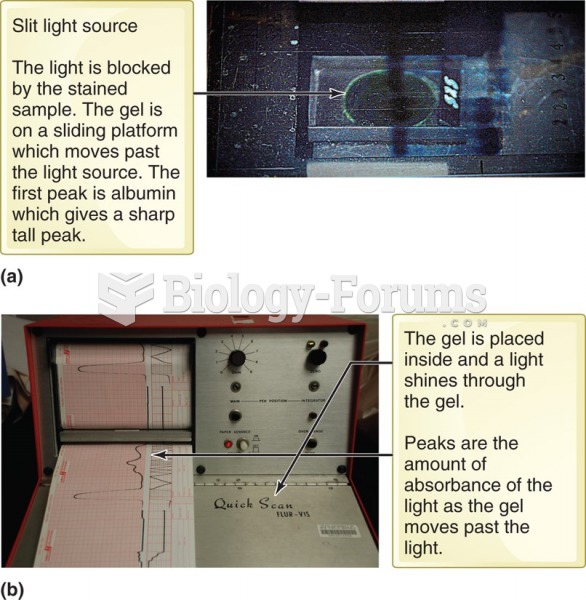|
|
|
In 1844, Charles Goodyear obtained the first patent for a rubber condom.
People with alcoholism are at a much greater risk of malnutrition than are other people and usually exhibit low levels of most vitamins (especially folic acid). This is because alcohol often takes the place of 50% of their daily intake of calories, with little nutritional value contained in it.
Drug-induced pharmacodynamic effects manifested in older adults include drug-induced renal toxicity, which can be a major factor when these adults are experiencing other kidney problems.
For pediatric patients, intravenous fluids are the most commonly cited products involved in medication errors that are reported to the USP.
Nearly 31 million adults in America have a total cholesterol level that is more than 240 mg per dL.







